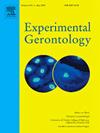体力活动、久坐行为和睡眠的组合与老年人的认知功能有何关系?系统回顾
IF 4.3
3区 医学
Q2 GERIATRICS & GERONTOLOGY
引用次数: 17
摘要
老年人的认知功能与每一项身体活动、睡眠和久坐行为之间的关系都有很好的记录。然而,这三种时间使用行为是24小时工作中相互依赖的部分(花时间在其中一种行为会减少其他行为的时间),它们对老年人认知功能的最佳平衡在很大程度上仍然未知。这篇系统综述总结了老年人两种或两种以上时间使用行为组合与认知功能之间关联的现有证据。Embase、Pubmed、PsycInfo、Medline和Emcare数据库于2020年3月进行了搜索,并于2021年5月进行了更新,共返回25289篇论文进行筛选。综合研究共包括23项研究,涉及23000多名参与者(平均年龄71岁)。研究结果支持了之前的证据,即花更多的时间进行体育活动和限制久坐行为与老年人更好的认知结果广泛相关。一天中中等强度的体育活动比例越高,认知功能越好。一些证据表明,某些类型的久坐行为可能与认知功能呈正相关,如阅读或使用电脑。睡眠持续时间似乎与认知有着倒U型关系,因为睡眠过多或过少与认知功能呈负相关。这篇综述强调了方法和统计方法的巨大异质性,并鼓励采用更标准化、透明的方法来捕捉老年人的重要日常行为。强烈建议使用适当的统计方法研究所有三种时间使用行为对认知功能的影响,以进一步了解衰老中大脑功能的最佳24小时时间使用。本文章由计算机程序翻译,如有差异,请以英文原文为准。
How are combinations of physical activity, sedentary behaviour and sleep related to cognitive function in older adults? A systematic review
The relationships between cognitive function and each of physical activity, sleep and sedentary behaviour in older adults are well documented. However, these three time use behaviours are co-dependent parts of the 24-hour day (spending time in one leaves less time for the others), and their best balance for cognitive function in older adults is still largely unknown. This systematic review summarises the existing evidence on the associations between combinations of two or more time-use behaviours and cognitive function in older adults. Embase, Pubmed, PsycInfo, Medline and Emcare databases were searched in March 2020 and updated in May 2021, returning a total of 25,289 papers for screening. A total of 23 studies were included in the synthesis, spanning >23,000 participants (mean age 71 years). Findings support previous evidence that spending more time in physical activity and limiting sedentary behaviour is broadly associated with better cognitive outcomes in older adults. Higher proportions of moderate-vigorous physical activity in the day were most frequently associated with better cognitive function. Some evidence suggests that certain types of sedentary behaviour may be positively associated with cognitive function, such as reading or computer use. Sleep duration appears to share an inverted U-shaped relationship with cognition, as too much or too little sleep is negatively associated with cognitive function. This review highlights considerable heterogeneity in methodological and statistical approaches, and encourages a more standardised, transparent approach to capturing important daily behaviours in older adults. Investigating all three time-use behaviours together against cognitive function using suitable statistical methodology is strongly recommended to further our understanding of optimal 24-hour time-use for brain function in aging.
求助全文
通过发布文献求助,成功后即可免费获取论文全文。
去求助
来源期刊

Experimental Gerontology
医学-老年医学
CiteScore
7.30
自引率
2.60%
发文量
280
审稿时长
1 months
期刊介绍:
Experimental Gerontology is a multidisciplinary journal for the publication of work from all areas of biogerontology, with an emphasis on studies focused at the systems level of investigation, such as whole organisms (e.g. invertebrate genetic models), immune, endocrine and cellular systems, as well as whole population studies (e.g. epidemiology).
The journal also publishes studies into the behavioural and cognitive consequences of aging, where a clear biological causal link is implicated. Studies aimed at bridging the gap between basic and clinical aspects of gerontology, such as papers on the basic aspects of age-related diseases, are welcomed, as is research orientated toward the modulation of the aging process. Original research manuscripts, special issues, short reports, reviews, mini-reviews, and correspondence are published. Manuscripts on social aspects of aging and reports on clinical studies do not fall within the scope of the journal.
 求助内容:
求助内容: 应助结果提醒方式:
应助结果提醒方式:


